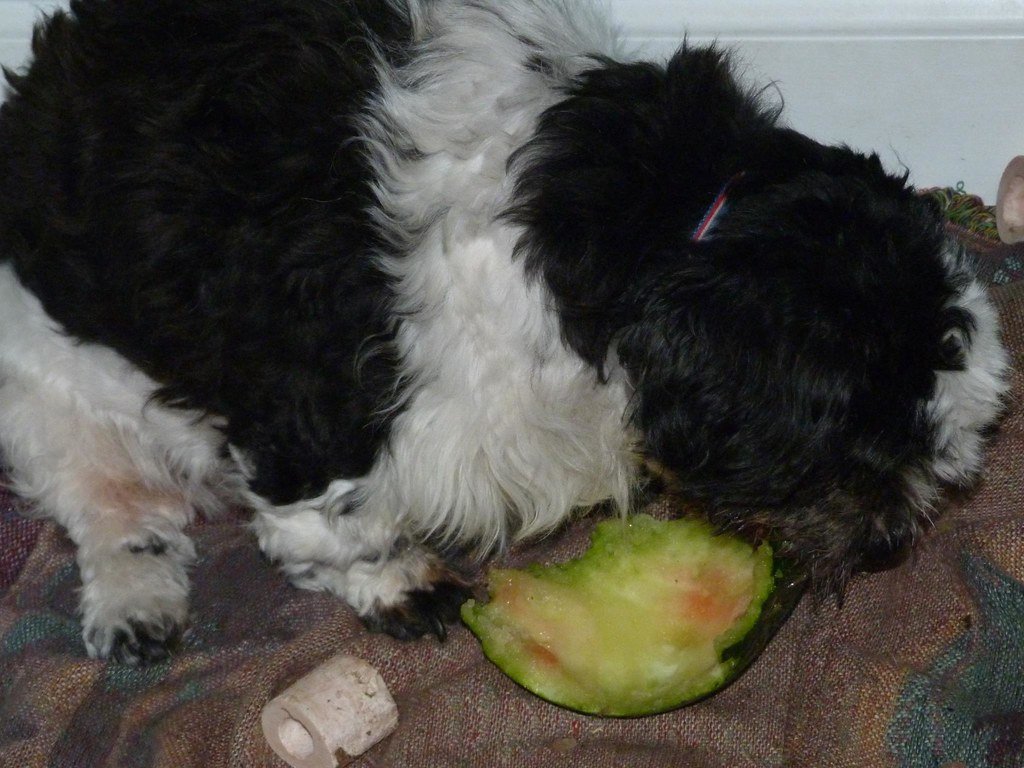Have you ever looked at your happy pup eyeing your juicy slice of watermelon and wondered, “Can dogs eat watermelon, or am I setting my best friend up for a bellyache?” You’re not alone! The answer might surprise you—and it could even bring a wag to your dog’s tail. Dog lovers are always searching for safe, healthy treats, especially when those puppy-dog eyes beg for a bite. Let’s dig into what veterinarians really say about sharing this sweet, summery snack with our four-legged family members.
Why Watermelon Appeals to Dogs (and Their Humans!)

There’s something almost magical about watermelon. Its bright color, sweet aroma, and juicy flavor just scream summer. For dogs, the appeal is just as strong—many are drawn to the scent and texture. Watermelon’s high water content makes it extra refreshing, especially after a walk on a hot day. Plus, the act of sharing your snack creates a bonding moment that every dog owner loves. However, just because your dog wants a bite doesn’t always mean it’s safe. That’s why understanding the “why” behind their interest is an important first step.
Is Watermelon Safe for Dogs? What Vets Recommend

The good news is that, according to most veterinarians, plain watermelon flesh is generally safe for dogs in moderation. Vets highlight watermelon as a low-calorie, hydrating treat that can be an excellent alternative to processed dog snacks. However, they stress the importance of avoiding seeds and rinds, which can cause digestive issues. Remember, just because something is safe in small amounts doesn’t mean your dog should eat it every day. Moderation is key—always start with a small piece to see how your dog reacts.
The Nutritional Benefits of Watermelon for Dogs
Watermelon isn’t just tasty—it’s packed with healthy nutrients that can benefit your dog. This fruit is rich in vitamins A, B6, and C, which support immune function, vision, and skin health. The high water content (over 90%) helps keep dogs hydrated, which is especially helpful during hot weather or after lots of exercise. Watermelon also contains antioxidants, which can help fight cell damage. It’s a guilt-free snack that delivers some surprising health perks, making it a favorite among many pet owners and their pups.
Potential Dangers: Seeds and Rinds Explained
While watermelon flesh is a safe treat, the seeds and rind can pose real risks to dogs. Seeds—both black and white—can cause intestinal blockages, especially in small dogs. The rind, though not toxic, is tough and difficult for dogs to digest, often leading to stomach upset, vomiting, or even more serious gastrointestinal problems. Veterinarians always recommend carefully removing seeds and cutting off the rind before offering watermelon to your furry friend. Think of it as peeling an orange before sharing it—you want only the good stuff for your pup.
How Much Watermelon Can My Dog Eat?
Too much of a good thing can quickly turn bad, even with watermelon. Vets suggest offering only a few small, bite-sized cubes at a time—think of watermelon as a treat, not a meal replacement. For a small dog, one or two cubes is plenty. Larger dogs might enjoy a few more, but it’s wise to keep portions under 10% of your dog’s daily diet. Too much watermelon can cause diarrhea due to its high water and fiber content. If your dog is new to this fruit, start slow and watch for any signs of digestive distress.
Signs Your Dog Might Not Tolerate Watermelon
Most dogs tolerate watermelon well, but some may have sensitivities. Common signs of trouble include vomiting, diarrhea, excessive drooling, or signs of stomach pain like restlessness or whining. If you notice any of these symptoms after your dog eats watermelon, stop giving it immediately and consult your vet if symptoms persist. Every dog is different—what’s safe for one might not be for another. Allergic reactions are rare but not impossible. Always supervise your dog with new foods and trust your instincts as their pet parent.
Creative Ways to Serve Watermelon to Dogs
There’s more than one way to serve up this summer treat! Many pet owners freeze small watermelon cubes for a crunchy, cooling snack. Others blend watermelon with a bit of plain yogurt and freeze the mixture in ice cube trays, creating a homemade “pupsicle.” For a special occasion, you can even carve out a mini watermelon bowl and fill it with other dog-safe fruits. Just remember: always remove seeds and rind, and avoid adding sugar or artificial sweeteners. Making treat time fun keeps your dog happy and engaged.
When Should You Avoid Giving Watermelon to Your Dog?

There are some situations where even the juiciest slice of watermelon should be off-limits. Dogs with diabetes or those on restricted diets should avoid sweet fruits, including watermelon, due to the natural sugar content. If your dog has a history of gastrointestinal issues or food allergies, it’s best to consult your vet before introducing any new treat. Puppies, with their delicate digestive systems, should also eat only tiny amounts—if any. When in doubt, always check with your vet before sharing human food.
What Do Real Vets Say About Dogs and Watermelon?
Veterinarians across the country agree: watermelon, when served properly, can be a safe and healthy treat for most dogs. Dr. Emily Johnson, a small animal vet, says, “Watermelon is a great option as long as owners remove seeds and rinds and keep portions small.” Another vet, Dr. Mark Lee, adds, “I love recommending watermelon for hydration on hot days—but moderation is super important.” These expert opinions reinforce what many dog owners have already discovered: with a little care, watermelon can bring a lot of joy.
Safe Alternatives to Watermelon for Dogs
Not every dog loves watermelon, and some simply can’t tolerate it. If that’s the case, there are plenty of other dog-safe fruits to try. Blueberries, apple slices (without seeds), bananas, and strawberries are all on the vet-approved list. Each offers its own unique nutrients and flavors, giving your dog variety and excitement during treat time. Always introduce new foods slowly and watch for signs of intolerance. With so many healthy options, you’re sure to find a fruity favorite for your furry friend.






